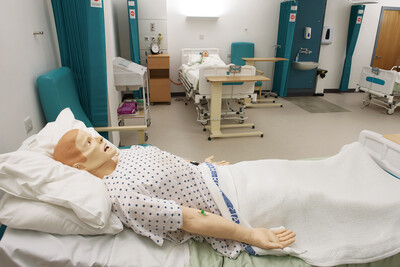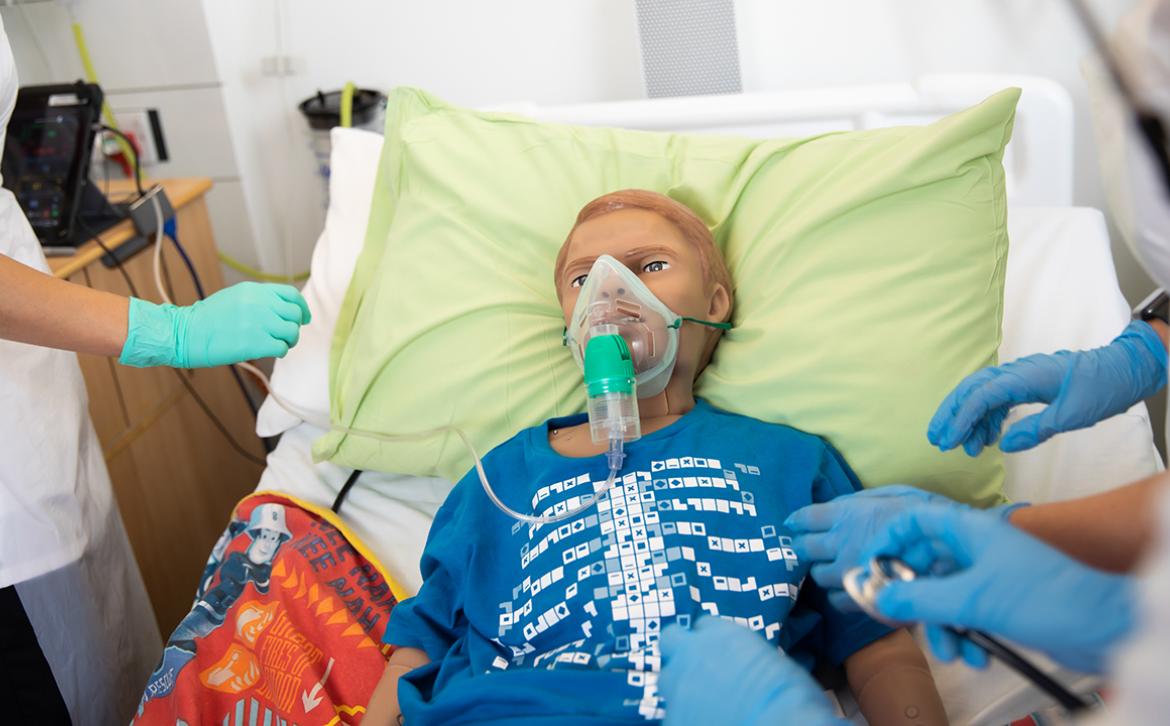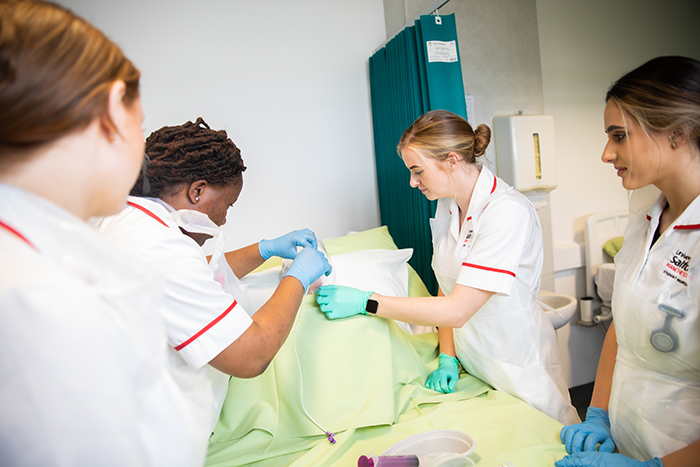Nursing Clearing courses
Clearing 2025 is now closed. Find out how to apply to the University of Salford and start your course in September 2026. If you have any questions about the Clearing process, take a look at our Clearing FAQs.
Discover our accredited nursing Clearing degrees and take the next step towards a rewarding career in healthcare.
Studying nursing at Salford
Nursing is much more than a job. You can make a difference in people’s lives by bringing comfort, promoting health, and saving lives. If you want a future in delivering and leading on safe, effective, and compassionate care for people with a range of health conditions, then our nursing Clearing courses are for you.
At the University of Salford, you can focus on the area of nursing that interests you the most. We offer degree courses in mental health nursing, adult nursing, and nursing for children and young people. We also offer a Nursing Associate direct entry route.
No matter which course you choose, you will be part of our large, close-knit community of students. Read our nursing students’ experiences to learn more about what it’s like to study nursing at Salford, and why students praise the support and sense of community they experience here.
When you study a nursing Clearing degree with us, you will spend 50% of your placement in hospital and community settings, in both the NHS and independent sector. This can entail working in wards, health centres, detention centres, care homes, or hospitals. During your placement, you will work in a well-supported environment alongside qualified practice assessors and supervisors.
Nursing facilities

The facilities on our nursing degree Clearing courses include several clinical rooms to enhance your learning. From taking blood to giving emergency CPR, you will learn a range of routine and more complicated procedures.
Housed in the Mary Seacole building, our clinical practice wards and simulation suite have been designed to give the look and feel of a real hospital. The rooms can be used for a range of scenarios, including adult bays, children’s bays, a treatment room, and a midwifery labour room.
The patient simulation lab provides you with opportunities to tackle real-life scenarios in a safe and supported environment. The lab contains hi-tech patient simulators that can mimic everything from the common cold to a major heart condition.
Video: tour of our nursing simulation suites
Take a video tour of our nursing simulation suites and hear from our nursing students about the benefits of learning in a simulation environment.

Our Nursing courses in Clearing

All our nursing Clearing degrees are accredited by The Nursing and Midwifery Council. On successful completion of these courses, you will receive a recognised degree qualification that leads to registration as a qualified nurse with the Nursing and Midwifery Council.
When you join the University of Salford, you will be welcomed into a friendly and relaxed environment where you can thrive. Studying nursing through Clearing will ensure you are ready for your future career. We will prepare you for the transition from student nurse to qualified nurse, both professionally and autonomously, to manage yourself and others effectively.
View our Nursing Clearing courses
BSc (Hons) Nursing (Registered Nurse – Adult)
Our BSc (Hons) Nursing (Registered Nurse – Adult) course is designed to equip you for a fulfilling career in adult nursing. Throughout the course, you'll gain essential skills in providing support, education, and care to adults and their families across various settings, including hospitals and community environments.
With a focus on public health, well-being, and global health, you'll also develop an understanding of the diverse factors influencing health within multicultural societies.
Our teaching methodology uses a blended approach, incorporating seminars, masterclasses, action learning, guided study, simulation, and workshops to facilitate your learning experience.
We put an equal emphasis on theory and practical application, with a balanced split of time between classroom learning and hands-on practice, enabling you to develop and refine the skills necessary for a successful career in adult nursing.
BSc (Hons) Nursing (Registered Nurse – Mental Health)
On our BSc (Hons) Nursing (Registered Nurse – Mental Health) course, you'll gain the expertise to support individuals facing ongoing mental health challenges, preparing you for a rewarding career in mental health nursing. You'll learn to assist those dealing with substance misuse or behavioural issues and provide support during acute phases of distress.
We'll equip you with the essential knowledge, skills, and professional attitudes necessary to deliver comprehensive care for both mental and physical health. Theoretical learning will be complemented by hands-on field practice, alongside seminars that facilitate group discussions and actionable feedback.
BSc (Hons) Nursing (Registered Nurse – Children and Young People)
We are accepting applications through Clearing for the January 2026 intake.
Do you have a strong desire to help some of the most vulnerable people in our society? Our BSc (Hons) Nursing (Registered Nurse – Children and Young People) will teach you how to manage and maximise the health of children and young people in a hospital or in the community.
You will gain the knowledge and skills to deliver professional and compassionate family-centred care. We will work with you on your development to become an emotionally intelligent nurse who is able to lead and coordinate compassionate, person and family-centred care, while working as an integral member of interdisciplinary teams.
FdSc Nursing Associate (Direct Entry Route)
Nursing Associates work with registered nurses to care for patients and service users of different ages and in a range of settings. They are integral members of the healthcare team – bridging the gap between support workers and registered nurses.
Our FdSc Nursing Associate (Direct Entry Route) degree is designed to train you on how to deliver hands-on care, ensuring patients continue to get the compassionate care they deserve. This course is a two-year programme leading to a Nursing Associate Foundation Degree.
You will work alongside qualified practice assessors in diverse learning environments, gaining exposure to a wide variety of care-giving settings.
Contact us

If you have a question about studying any of our courses, contact our friendly team today on +44 (0)161 295 4545 or enquiries@salford.ac.uk.
